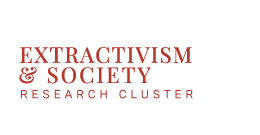Political Economy of Extractivism and the cultural action of its actors
Artiga-Purcell, James Alejandro, Thomas Chiasson-LeBel, Fernando Leiva, and Alejandra Watanabe-Farro. submitted. “Disaster Extractivism: Latin America’s Extractive Shock Therapy in the Age of Covid-19.” Latin American Perspectives.
Chiasson-LeBel, Thomas, James Alejandro Artiga-Purcell, and Alejandra Watanabe-Farro. 2020. “Pandemia y extractivismo: una contaminación colonizadora cruzada.” Information. Rebelión (blog). September 27, 2020. https://rebelion.org/pandemia-y-extractivismo-una-contaminacion-colonizadora-cruzada/.
Chiasson-LeBel, Thomas. 2016. “Development, Capitalists and Extractive Rent: Class Struggles in Venezuela and Ecuador.” PhD, Toronto: York University.
Available here
Chiasson-LeBel, Thomas. 2016. “Neo-Extractivism in Venezuela and Ecuador: A Weapon of Class Conflict.” The Extractive Industries and Society 3 (4): 888–901. http://dx.doi.org/10.1016/j.exis.2016.10.006.
Abstract
Over the last four decades, the role of the extractive sector in the development models of Venezuela and Ecuador has changed significantly. This study examines how class struggle affected the role of rent within three divergent development models: import substitution industrialization (ISI)-corporatist, neoliberal-fragmented, and rentier-controlling. It argues that the attitude of the capitalist class towards the state and the working class was crucial in the transition from the ISI-corporatist model to the neoliberal-fragmented model. It led to a process of privatization in the oil industry and competition among capitalists for rent. In response to the social consequences of this shift, the left-wing governments reclaimed state ownership of hydrocarbon resources and obtained more rent in efforts to recover some state autonomy. A more unified capitalist class in Venezuela reacted more aggressively to this transformation of the social property relations around hydrocarbons, while in contrast, a more divided capitalist class in Ecuador reacted more mildly. However, both governments redistributed rent and created subservient popular sector organizations in order to curb popular power as well as offset the power of the capitalist class. In contrast to some analyses of extractivism, this paper takes a class perspective that emphasizes the changing role of resource extraction within different development models despite outward appearances of continuity.
Available here
Theory of the state, Economic Elites and the wave of Post-Neoliberal governments in Latin America
Chiasson-LeBel, Thomas. 2020. “Tres periodos de relaciones entre las élites y el Estado: una comparación entre los casos de Venezuela y Ecuador.” In Concentración económica y poder político en América Latina, by Liisa North, Blanca Rubio, Alberto Acosta, and Carlos Pástor, 93–136. Mexico (D.F.): Fes-Ildis; Universidad Andina Simón Bolívar; Clacso.
Available here
Chiasson-LeBel, Thomas. 2019. “Neoliberalism in Ecuador after Correa: A Surprise Turn or According to Economic Elites’ Plan?” European Review of Latin American and Caribbean Studies, no. 108: 153–74. https://doi.org/10.32992/erlacs.10500.
Abstract
This article examines economic elites’ reactions to early efforts by Ecuador’s left government to limit their clout. Elites developed an infrastructure of dissent to promote their interests. Some chambers of commerce and industry adapted their strategies to promote ideas and public figures that would gain increasing public and political prominence. Domestic conglomerates used different strategies to regain influence: ostentatious attempts to use economic power to capture the highest sphere of government offered promising results when accompanied by electoral wins, but active yet subtler strategies to improve their public image allowed some conglomerates to dispute the definition of development with the state and to cast themselves as representing collective well-being. By showing how economic elites used the global economic conjuncture and the trend of corporate social responsibility to advance their economic program, this article demonstrates that studying the agency of economic elites is essential for understanding how business interests shape political outcomes.

